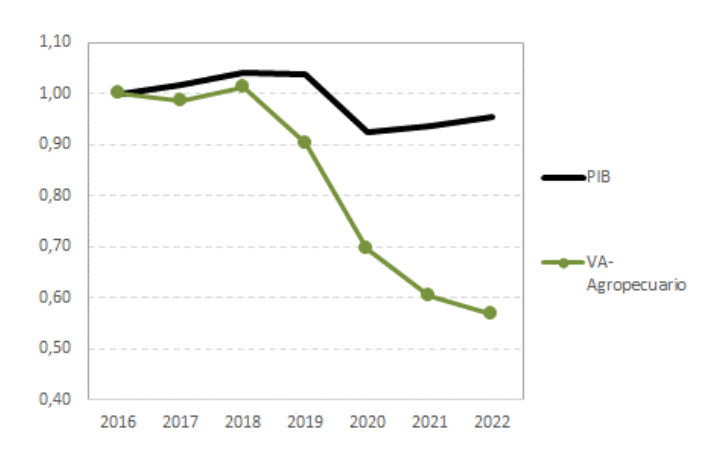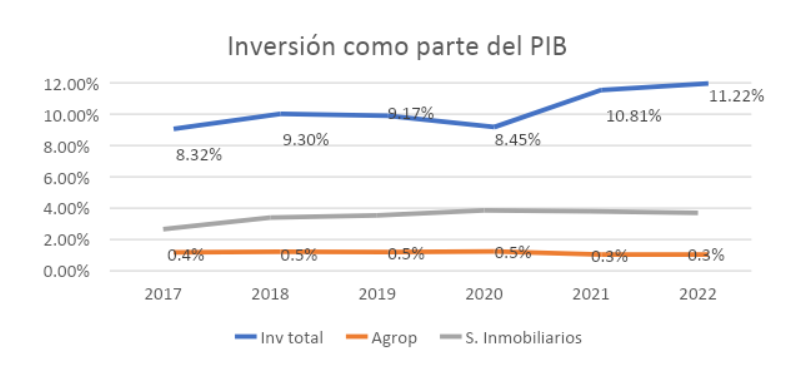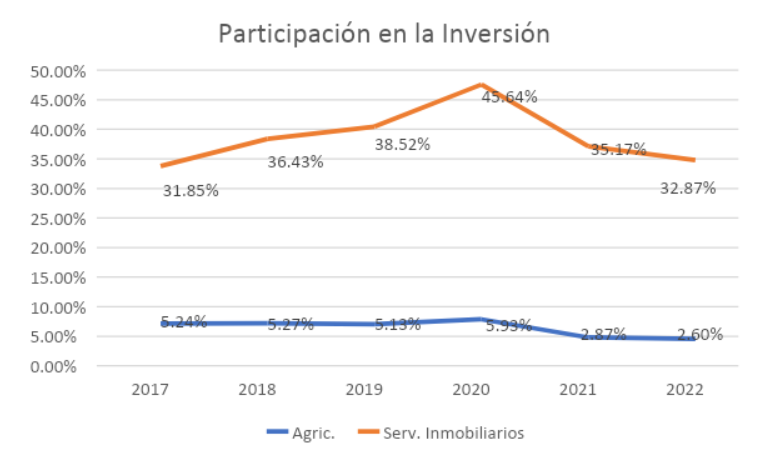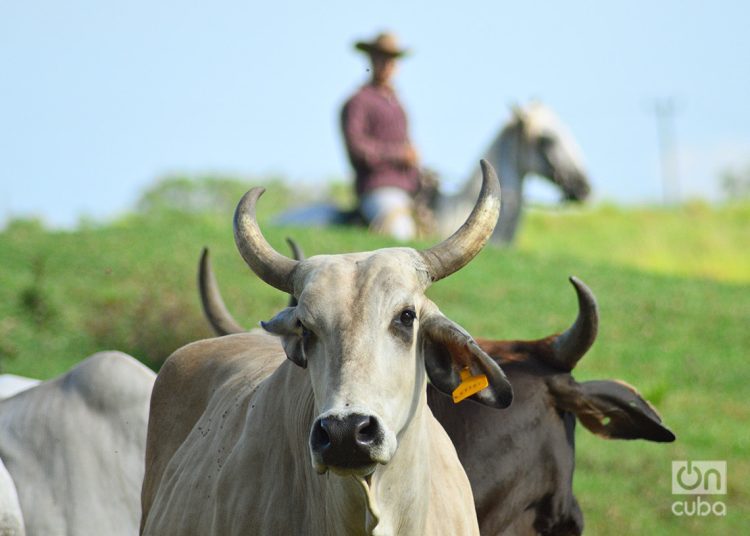But, if I had
just a mocking
spider in my pantry,
I would be ashamed.
What else?
Silvio Rodríguez
Back in the 1980s, my cousin Darío, a small farmer from the Cuenca Sur, in Quivicán, where the land produces what you ask for according to another farmer from there, told me that he didn’t understand how the political cadres in the area asked him to plant cane when the land still did not have the necessary humidity.
He, following “directions” and after much “discussion,” sowed, with which the higher levels could be “informed” that the sowing goal had been met, although later the germination was barely 60%, with which the yield per hectare collapsed until it was very far from the yields that the farm achieved in other times.
There was always — and still exists — the resource of blaming the drought or the cyclones, or both at the same time, to explain the poor results. By the way, this year 2023 in Cuba we have not had a drought, at least not of rainwater.
Getting nature to listen to political will seems like an impossible task.
A good friend, a “shore” fisherman since his childhood, told me one day: “Juan, the sea in the long run recovers what is taken from it.” I have never found a better phrase to illustrate the resilience of nature in the face of human stubbornness. Sometimes, and in our specific case, political will becomes the highest expression of that stubbornness of the human being to ignore the objective laws of nature, the economy and society.
One day I discovered that in Cuba you can harvest wheat. I found out from a baker-farmer. In fact, wheat was harvested in a distant time, back in the 17th or 18th century, I believe. Today we have seeds adapted to our conditions, some obtained a long time ago, in the 1930s and 1940s, at the agronomic experimental station of Santiago de las Vegas (current Institute of Fundamental Research of Tropical Agriculture). These seeds achieve yields of about 4 tons per hectare, with zero fertilizer and not all the water it needs. You just need to prepare the land well, sow it in due time and give it the necessary attention to weed it.
There are concrete experiences in Cuba, some good and others unsuccessful, because the “political will” decided to sow at the wrong time and in poorly prepared land. It is true that the yields are not comparable to transgenic seeds; it is true that there is no “foreign assistance”; it is also true that there would be no need to travel to another country to acquire that experience, because if extensionism were practiced properly everything would remain at home.
There was another time when producing biotech products seemed like a pipe dream. However, this time the “political will” worked and facilitated the impossible: producing our own COVID-19 vaccines.
It happens with corn, of which in those years hybrid varieties were achieved at that Experimental Station with yields of between 4-5 tons per hectare, and it was so successful that a U.S. institution stripped us of the patent. Compared to the yields of just one ton per hectare announced at — what shall we call it? — Mesa Redonda (Roundtable) TV program last week, they leave little to say.
What the data show is an accelerated deterioration of the sector, consistent with the “revelations” made at the Mesa Redonda. What the data add is that this deterioration is not only concentrated in these last three years, but that it is a kind of silent disease, poorly diagnosed and poorly medicated, which has brought us to this point.
Dynamics of GDP and agricultural value added

This behavior of agricultural value added is perfectly consistent with the low investment in the sector.

It is true, as my friend says, that the land produces what you ask of it. But the land also asks of you. It is also true that the investment rate as a proportion of GDP is extremely low for our growth needs. But those low levels of investment in agriculture are costly in the long run. They cost in yields, in productivity, in products and in supply; they cost more imports and, above all, fewer farmers working the land.
Knowing that we are a blocked country, that we are an archipelago, that our security and food sovereignty are strategic, it is difficult to understand why, if we do not have the necessary resources, this sector remains so closed to foreign investment and national private investment. How is it possible that there is an “orientation” that determines not to give land to SMEs, the same ones that are asked to produce? Where did the political will go?
It should be said again that not everything has been a lack of resources to invest. If the participation of the sectors in the total investment is examined, it can be seen that a great deal of the resources that have been invested were not to promote food production and thus confront Trump’s siege; they were not for ensuring that food sovereignty that we have heard so much about.
How is it possible that having declared the agricultural sector a strategic sector, after having ratified it in the two updates of the strategy made under the impact of that terrible combination of the Trump administration’s measures and the pandemic, still in 2022 the participation of agriculture in investment is less than that of 2021 and less than half of what it was in 2020?

How is it possible that agriculture’s participation in investment is more than ten times less than investment in the real estate sector? Today we have few tourists for so many rooms and very little food for those few tourists. We also have many lines that have lasted too long.
But we have not gotten this far without trying to reverse some of these situations. Before the much-discussed 63 measures to stimulate agricultural production and the approval of the Sovereignty Law, in the second decade of this century, more than 20 measures had been taken with the same purpose, without the results that were expected from them.
It would be good to ask how it is possible that the sector that has received the most measures (let’s not forget the 91 in the sugarcane industry) has not been able to take off. Could it be that the causes have not been adequately identified?
And why not come to that Mesa Redonda with a concrete program, with identified drivers and with coherent incentives with the purpose of producing and taking advantage of our agriculture? For example:
- Give land effectively to those who work it.
- Apply gradual sanctions to those who do not use it properly.
- Reduce the bureaucratic apparatus of the Ministry of Agriculture.
- Resize the state business system in the agricultural sector, both in the number of enterprises as well as its bureaucratic apparatus.
- Create an Agricultural Development Bank, with the participation of state, private and national cooperative capital and foreign capital.
- Open the sector to national, cooperative and foreign private capital with tax, tariff and credit incentives.
- Expeditiously approve usufructs for individuals, cooperatives and SMEs, in addition to credit, tax and tariff incentives.
- Expeditiously approve second-degree cooperatives in this sector.
- Create Special Agricultural Development Zones, with the same incentives that enterprises based in Mariel enjoy today.
- Promote and put out to tender public-private alliances for the development of circular economy projects, short supply chains, marketing of agricultural products and production of goods and inputs for the agricultural sector.
- Subordinate agricultural delegations to municipal governments.
Without a doubt, very clear “rules of the game” would be needed, which generate confidence and help forget unpleasant experiences.
Maybe not so many measures are necessary, but we have to get going and pull out the weeds once and for all and for this we need the “political will,” the one that understands nature, human beings and society.
I had mixed feelings when I heard again the string of difficulties in the sector, of which they had given us a preview in the last session of the National Assembly. I felt shame, and not someone else’s, but my own. I think that in particular I have not done enough to leave my grandchildren solutions to problems that one day, when I was not yet thinking about grandchildren, I believed would be solved when this moment came.











Somewhere between capitalist greed and socialist bureaucracy lies good sense and practical application.